Quick Start Guide, Apricot MS (Rev 1.10.1)
Up and running in a few minutes in a few simple
steps
1
NOTE: BEFORE YOU START. If you have a TV card fitted,
the first time you press the TV button on the remote control you will activate a TV wizard
which will guide you through tuning in to your local transmitters. MAKE SURE that you have
connected the aerial and that the monitor lead is connected to the TV card, NOT the
computer's normal monitor connector.
Press the lower of the two power buttons, bottom right. This turns on
the system. The upper purple, or 'standby' button is covered in Note 5, don't press this
yet. Press the corresponding button on the monitor. If nothing happens, check your
connections and your supply switch. There is a chapter in the Owner's Handbook called
'Troubleshooting', which will help you if you should encounter any problems.
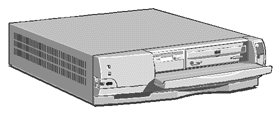
The system will now perform a self test routine and then display a
message 'Starting Windows 95'. This sets up the computer and it's operating system for you
to use. This will take a few seconds and then you will see the opening screen. If you have
the remote control or perhaps the TV card option, this could be a quick guide to the
Remote Control and the Apricot suite of software.
2
It might be a good idea, if you are unfamiliar with Windows, to run some
of the tutorials. These can be found in the HELP section of the Start menu (bottom left of
the screen).
When you come to switch off, the system power button will turn the
monitor off with the computer (if the monitor power lead has been connected to the
system).
The Remote Control
Supplied as an option with Apricot Multimedia computers having the TV
card fitted, is the Remote Control.
First, fit the batteries, they fit into the compartment in the rear of
the Remote Control as shown here.
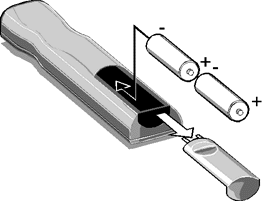
These batteries will need changing only occasionally, they are an
readily available standard size, AA and you need two.
The remote can be used to control a host of the features on the computer
system and act as a remote mouse.
3
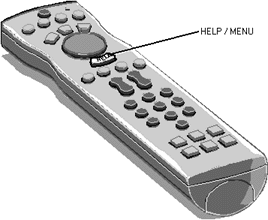
It has a close resemblance to a TV control and works on the same
principle of using an infrared beam. It needs a clear line of sight to the front of the
system.
Press first the HELP / MENU button. This will display a little window
relevant to the feature currently in use. The example given below is the one for the TV
Tuner. You will quickly notice that the four coloured buttons give you control over a
large part of your system, (red for direct HELP) launching applications, games and other
features you may have installed in your Apricot system.

Some of the buttons are only for applications such as the Apricot TV,
which may have been fitted for you at our factory along with other options such as the
Radio or a Modem.
4
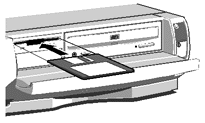
You can now load any new software from either floppy disks or from
CD-ROM disks. Both types of drive are fitted to your machine.
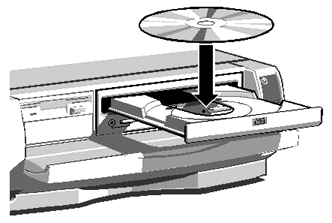
The majority of new software is being issued on CD, especially the
multimedia and professional titles.
CDs are much easier to carry and store, having the equivalent capacity
of well over 400 floppy disks.
More detailed information can be found in the Owner's Handbook when you
need it, along with detailed technical information about your system and it's internal
components.
If you look at the set of manuals, you will find amongst them a quick
guide to Windows 95 explaining how to use some of it's great features.
5
ONE BRIEF WORD OF WARNING
This computer system is shipped with the latest Energy
Star power saving features active, allowing you to be more environmentally friendly in
your work. It is intended to help reduce global power consumption, and ultimately waste
and pollution. This system is designed, when left unattended, to go into a 'Low Power'
mode.
LOW POWER MODE (the standby light on the purple button
will flash) The screen will blank but software will still run, though it will be much
slower.
Restoring the system is by moving the mouse, pressing
any keyboard key, or by pressing the purple standby button, top right of the computer
front. The computer will restore to the state in which you left it, almost immediately.
Depending how long it was left in 'Low power', the monitor may take a few seconds to warm
up again.
 

|

